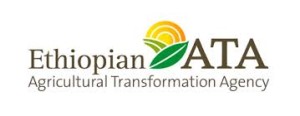IFPRI leads a project that was launched in 2011, with support from the Bill & Melinda Gates Foundation, and that provides policy research, capacity building, and policy communications support to the Ethiopian Agricultural Transformation Agency (ATA).
The ATA, established in December 2010, was the result of two years of extensive analysis led by IFPRI researchers on eight areas within Ethiopia's agricultural sector: seeds, input markets, irrigation, cooperatives, soil health, technology access and adoption, extensions and research, and output-market value chains. This relatively new government agency is supporting the Government of Ethiopia’s national agenda to achieve growth in the agriculture sector and food security.
Central to the formation of ATA as a coordination agency—which will work with the Ministry of Agriculture (MoA), regional Bureaus of Agriculture, the Ethiopian Institute of Agricultural Research, and private and civil society partners—was the realization that past agricultural development initiatives in Ethiopia focused on narrow issues, which led to disconnected interventions across the agriculture sector. As a result, many projects did not achieve widespread success in improving national agricultural productivity and production. To remedy these issues, the ATA works across three main areas:
- Increasing the yields of key commodities such as cereals (maize, teff, wheat, and barley), pulses, oilseeds (particularly sesame), coffee, and livestock
- Addressing more systemic issues, such as cooperative management, seed quality, and soil health
- Dealing with research themes such as gender, private and public partnerships, monitoring, learning, and evaluation that are relevant across the agriculture sector
IFPRI provides research support to the ATA in its efforts to introduce innovative approaches to increasing agricultural productivity and improving market efficiency. The research tasks are designed to meet the ATA’s demands, and to be responsive to a need for both longer-term strategic research and shorter-term information needs.
OUTCOMES
- IFPRI provides policy guidance to the ATA on specific issues related to the eight areas within the agricultural sector or other aspects of agriculture that might become important. These issues include the following:
- Fertilizer imports (Ethiopia’s MoA agreed to adopt IFPRI’s proposed projection model and reduce 2012 fertilizer imports. The cancellation of the import of 250,000 tons saved the country roughly $200 million)
- Financial audits of Ethiopia’s agricultural cooperatives
- Minimum price support for Ethiopian wheat, economical storage options, and grain export bans
- IFPRI provides monitoring and evaluation of the ATA’s interventions, such as those involving teff, wheat technology, and direct seed marketing.
- IFPRI works with the ATA on cross-cutting agricultural issues such as the following:
- Research on agricultural production and marketing that can help inform the design of future ATA interventions
- Soil diagnostics to develop an up-to-date soil map to help farmers achieve healthier soil, higher productivity, and sustainable land management practices
IFPRI offers trainings and resources to the ATA on topics such as surveying and interviewing tools, forecasting fertilizer demand, and statistical programs.



